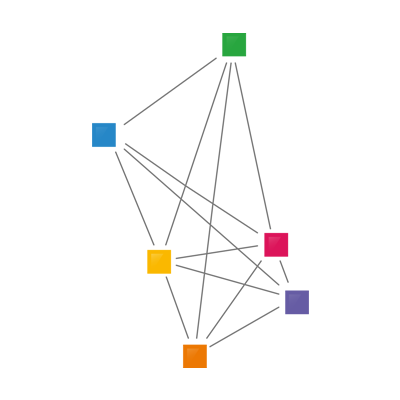Networks and connectivity
5 Apr 2019 09:45h - 10:45h
Event report
[Read more session reports and live updates from the 2nd Western Balkan Digital Summit]
Ms Veronica Bocarova (Principal Analyst, Cullen International) moderated the session.
Ms Irini Reljin (Acting Assistant Minister for Electronic Communications and Postal Services, Ministry of Trade, Tourism, and Telecommunications) said that while preparing for 5G everyone needs to keep in mind there is a need for powerful optical network. It is necessary to build own cloud networks to enable effects that 5G provides, such are high speeds and small delays. With all the existing technologies, Reljin believes co-operation and collaboration within the region is critical and the only way to produce positive changes. She also added that data needs to be open and have the same format in order to exchange data and knowledge. She noted that when it comes to infrastructure in Serbia operators already did ’a great job’, but there is still job to be done in the rural areas.
Ms Dorina Cinari (Deputy Minister, Ministry of Infrastructure and Energy, Albania) said that Albania has a high mobile penetration and that mobile data traffic has also increased. Fix broadband penetration is, however, still low. There is still room for further investments, especially in the rural areas. She noted that there are different perspectives from the government and the private sector but it is important to ’sit and talk together’. Being transparent on both sides is of paramount importance, said Cinari. When it comes to trust, in Albania everything is done via mobile apps. However, they still receive a lot of feedback that providers of services are not being transparent and trustworthy.
Mr Anastas Michev (Associate Professor at Faculty of Computer Sciences and Engineering, North Macedonia) said that research today also requires computing capabilities, open data, and good infrastructure. Politics is often an obstacle for academic and scientific work and therefore close collaboration is important. He reminded that the national operational broadband plan has been done in co-operation with academia and the government. He also said that academics cannot survive without the state support. Trust is extremely important, especially when it comes to sharing data and knowledge. He underlined that before all, 5G needs more use cases.
Mr Mike Michel ( CEO, Telenor Serbia, Chair of the Management Board, Telenor Montenegro) gave an interesting fact that there are more phones than people in Serbia. Coverage using 3G is almost 100%, including the deepest rural areas. There has been a big shift over the years with affordability for 4G devices. ’Serbia is moving to the digital society’, Michel said. He invited for collaborative work to ensure investments are in place. He predicted around 400% of data growth in the next four years. The challenge for the private industry is dealing with the massive demand for data only to get 1% of growth as the private industry, which means it is disproportionate to the investment. He said that Telenor or the industry needs to do the following:
- Have a constant and open dialogue
- Have a regulatory framework fitting for the digital age
- Collaboration and sharing is key
- More engagement with costumers
- Role of security is the key
He concluded by saying that 5G is not ready to be commercialised.
Mr Nikola Ljushev (Chief Executive Officer, Makedonski Telkom) emphasised that investors and operators are looking into the stable and fair regulations. In such preconditions, there is a good likelihood for serious investments to happen. He invited governments and regulators to promote and enable a cooperative model for investments which should be fair, predictable, and with no surprises. He believes that in the future there is a need to focus on integrating technology-neutral and standard-based networks. Digital needs to be included in political agendas, and specifically in bridging the digital gap. According to Ljushev, more transparency on government decisions is crucial in order for the private sector to be able to deliver on the plans.
By Aida Mahmutović
Related topics
Related event

